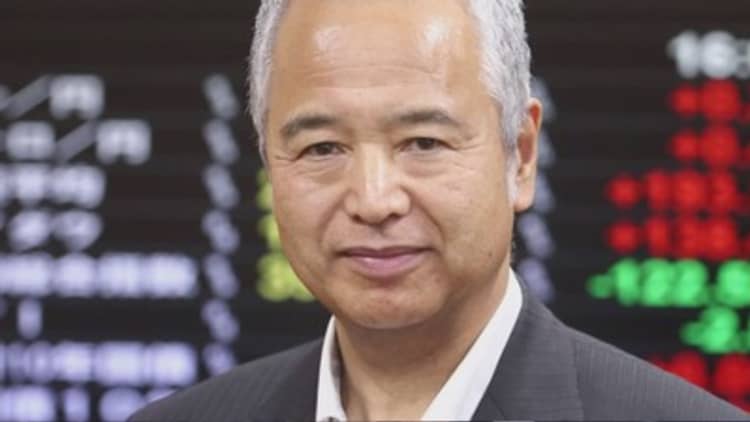
Japan's prime minister hastily ushered in a new economy minister on Thursday after the surprise departure of Akira Amari over bribery allegations but analysts expect little change in the government's stimulus plan.
Nobuteru Ishihara, a former executive of the ruling Liberal Democratic Party (LDP), is to take over as new economy minister following the surprise resignation of Amari over allegations that he pocketed bribes from a construction company, an accusation he denies.
Japanese Prime Minister Shinzo Abe said he wanted 58-year old Ishihara, who has held several ministerial posts in a former government, to continue with structural reforms and revitalizing the economy.
Speaking to the press, Ishihara said he intended to guide economic policy to spread the benefits of "Abenomics" to the real economy and small businesses, Reuters reported.
"Abenomics" is the economic policy to boost competitiveness, spearheaded and named after the prime minister, that involves fiscal stimulus, monetary easing and structural reforms.
Now all eyes are on the Bank of Japan's monetary policy meeting on Friday at which it is also expected to present its inflation outlook, with questions being raised over whether the central bank could up its stimulus measures.
The committee's decision comes amid a period of tumult for Japanese assets, a strengthening yen hurting Japanese exports and low inflation forecasts amid a global slide in oil prices – on top of the latest surprise to the economy with Amari's departure.
Richard Cocchinos, director and FX strategist at Citi, told CNBC that there was a lot of market concern about the strength of the yen, currently trading at 118.88 against the dollar, and that analysts were watching whether the Bank of Japan could announce more stimulus when it outlines its latest decision on monetary policy and outlook for inflation on Friday.
"There's a lot of concern about it (about the level of the yen) and, with the Bank of Japan on Friday, it's increased the market attention and focus," he said.
"Ultimately, 'Abenomics' has set some very high bars and it's been moving towards them but it's been moving at a rate that most people just feel is too slow. and so while it's not the base case view of our in-house or even on the street there are some expectations on the street that the BoJ really needs to ramp up to help meet these goals that Abe has laid out so that's really the event risk we're facing on Friday," he added.
David Bloom, global head of foreign exchange strategy at HSBC, told CNBC on Thursday that the new appointment would not change the Bank of Japan's strategy at all.
"The Japanese experiment with quantitative easing (QE) is in full flow, their (the Bank of Japan's) balance sheet is nearly 75 percent of GDP, they're not turning their backs on it. They're going full out and it's not just one or two members (of the bank's monetary policy committee)," he said.
"The big question is coming up on Friday when the Bank of Japan is meeting. Are they going to do more quantitative easing (QE)? When Mario Draghi, (the head of the European Central Bank) said the ECB would do more (by increasing stimulus), people started thinking that Japan would do more and markets started to rally and went risk-on. But I think Japan has also curtailed (that expectation)."
Outgoing minister Akira Amari said on Thursday he will step down from his post to take responsibility over allegations he received bribes from a construction company.
"Japan is finally emerging from deflation ... We need to pass legislation through parliament for steps to beat deflation and create a strong economy as soon as possible," Amari told a news conference, Reuters reported.
"Anything that hampers this must be eliminated, and I'm no exception. I, therefore, would like to resign as minister to take responsibility (for what my aide has done)," he said.
Akira Amari denied allegations made by a magazine that he put money he received from a construction company executive directly in his pocket.
"Putting money in my suit pocket in front of a visitor ... would be lacking dignity as a human being," Amari told a news conference.
Amari said the construction company executive paid a visit to his room at the Cabinet Office with gifts, but he told his aide to correctly record them as a political donation.
Reuters contributed to this report.





